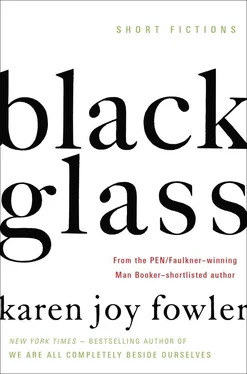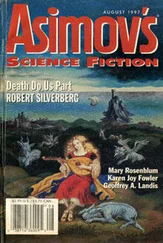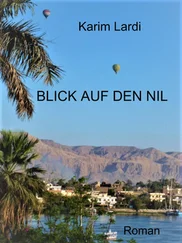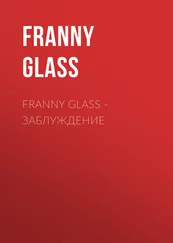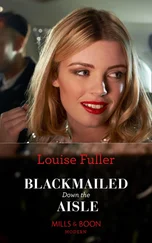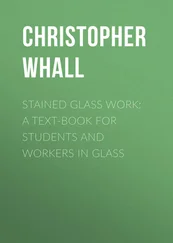“I do,” said Tilly.
“Then why aren’t you married to Steven?” Alice asked. “Why are you here in the rain forest instead of home married to your nice man? Because there’s no adventure with Steven. No intensity. The great thing about men, the really appealing thing, is that you can’t believe a word they say. They fascinate. They compel.” Alice knew a variety of men. Some of them had appeared to be nice men initially. Alice always found them out, though. Occasionally they turned out to be married men. “I don’t know why so many women complain that they can’t find men willing to commit,” Alice said. “Mine are always overcommitted.”
Steven must be just starting to wonder if everything was all right. A small worry at first, but it would grow. No sight of them in Óbidos, he would hear. Where they were expected four weeks ago. Perhaps the boat would be found, covered by then in the same purple vines that choked the rest of the riverbank. Would Steven come himself to look for her? Steven had taken her to the plane, and at just the last minute, with his arms around her, he had asked her not to go. Tilly could feel his arms around her arms if she tried very hard. He could have asked earlier. He could have held her more tightly. He had been so nice about the trip. Tilly thought of him all day long, and it made her lonely. She never dreamed of him at night, though; her dreams had shadows with elongated arms and subtly distorted shapes. Steven had no place in that world. And even without him, even with the dreams, night was better.
A storm of huge green dragonflies battered themselves against the walls of the tent, but they couldn’t get in. It sounded like rain. All around her, outside, her jailers grunted as they drove the insects away with their hands. They were in front of the tent and they were behind the tent; there would be no more escape attempts. Alice was no longer even planning any. Alice was no longer planning anything. To convince herself that Alice would be coming back, Tilly played Alice’s game. She sat still with her legs crossed, combing out her hair with her fingers, and tried to think of another prisoner for their list. Her last suggestion had come from a story she suddenly remembered her father telling her. It was about a mathematician who’d been sentenced to death for a crime Tilly didn’t recall. On the night before his execution he’d tried to write several proofs out, but very quickly. The proofs were hard to read and sometimes incomplete. Generations of mathematicians had struggled with them. Some of these problems were still unsolved. Tilly’s father had been a mathematician. Steven was an industrial artist.
Alice had told Tilly she had the story wrong. “He wasn’t a prisoner and he wasn’t sentenced to death,” Alice said. “He was going to fight a duel and he was very myopic so he knew he’d lose.” She wouldn’t count Tilly’s mathematician. The last prisoner of Tilly’s whom Alice had been willing to count was Mary, Queen of Scots. This was way back when they were first detained. Tilly was just the tiniest bit irritated by this.
The river drummed, birds cried, and far away Tilly heard the roaring of the male howler monkeys, like rushing water or wind at this distance. Bugs rattled and clicked. Each ordinary sound was a betrayal. How quickly the forest accepted an alien presence. It was like plunging a knife into water; the water re-formed instantly about the blade, the break was an illusion. Of course, the forest had responded to Tilly and Alice in much the same way. And now they were natives, local fauna to an expedition from the stars. Or so Tilly guessed. “Our only revenge,” she had told Alice, “is that they’re bound to think we’re indigenous. We’re going to wreak havoc with their data. Centuries from now a full-scale invasion will fail because all calculations will have been based on this tiny error.”
Alice had offered two alternative theories. Like Tilly’s, they were straight from the tabloids. The first was that their captors were the descendants of space aliens. Marooned in the forest here, they had devolved into their current primitive state. The second was that Tilly and Alice had stumbled into some Darwinian detour on the evolutionary ladder. Something about this particular environment favored embedded eyes and corkscrew fingers. It was a closed gene pool. “And let’s keep it closed,” Alice had added. She smiled and shook her head at Tilly. Her braids flew. “South American Headshrinking Space Aliens Forced Me to Have Elvis’s Baby,” Alice said.
At first Alice had kept diary entries of their captivity. She did a series of sketches, being very careful with the proportions. She told Tilly to take pictures but Tilly was afraid, so Alice took them herself with Tilly’s cameras. The film sat curled tightly in small dark tubes, waiting to make Alice and Tilly’s fortunes when they escaped or were let go or were rescued. Alice had tallied the days in the tent on her graphs and talked as if they would be released soon. There was no way to guess how soon because there was no way to guess why they were being held. Alice fantasized ways to escape. Tilly would have liked to ink the days off on the wall of the tent; this would have been so much more in the classical tradition. Four straight lines and then a slash. A hieroglyphic of the human hand. A celebration of the opposable thumb. Anne Boleyn had six fingers. Tilly wondered how she had marked the walls of her cell.
The door clicked to the side. Tilly sat up with a start. One of them was entering, bent over, her dish in its hands. It was one of the three who had taken Alice. There was no mistaking it, because it wore Tilly’s green sweater, the two arms tied round its neck in mock embrace, the body of the sweater draped on its back. The face belonged to a matinee horror monster, maybe the Phantom of the Opera. From the neck to the waist, largely because of her sweater, it could have been any freshman at any eastern university. From the waist down Tilly saw the rest of the sacklike gown, bare legs, bare feet. Monklike, only the legs were hairless. On the dish was a duplication of Tilly’s breakfast. She stared at it, hardly able to believe in it. She had never been offered additional food before. The door rattled again as she was left alone. She took a tiny bit of the fish in her fingers. She looked at it. She put it in her mouth. She took another bite. And then another. The food was here, after all. Why shouldn’t she eat it just because Alice was so hungry? How would it help Alice not to eat this food? Alice would want her to eat it. She ate faster and faster, licking her fingers. She ate the rind and seeds of the orange. She scraped the fish bones under her sleeping pad.
Alice was pale and tearful when she came back. She lay down, and her breath was a ragged series of quick inhalations. There were no marks on her. There never were. Just an agony about her face. “What did they do to you?” Tilly asked her, and Alice closed her eyes. “I mean, was it different today?” Tilly said. She sat beside Alice and stroked her hair until Alice’s breathing had normalized.
Alice had her own question. “Why are they doing this?” Alice asked. Or she didn’t ask it. The question was still there. “They don’t try to talk to me. They don’t ask me anything. I don’t know what they want. They just hurt me. They’re monsters,” said Alice.
And then there was a silence for the other questions they asked only deep inside themselves. Why to me and not to you? Why to you and not to me?
When dinner came that night, there was nothing but crackers for both of them. Alice was given more than Tilly. This had never happened before. “Look at that,” she said with the first lilt Tilly had heard in her voice in a long time. “Why do you suppose they are doing that?” She equalized the portions. “They will see that we always share,” she told Tilly. “No matter what they do to us.”
Читать дальше
